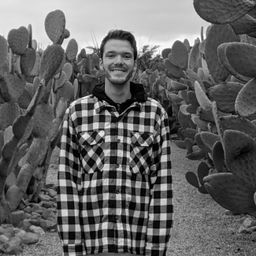Alex Veilleux Title : LGBTQ Tourism in Thailand: towards more legal rights or an example of pinkwashing?
by
Alex Veilleux
and
Anne Marie Van Broeck
In the last few years, there has been a growing literature on LGBTQ tourism. This literature mostly covers the LGBTQ market with regard to tourism and the economic impact of LGBTQ tourism for the destination since it is considered to be the fastest growing market in the world. Because of the recognition of this niche market, many governments have turned their marketing campaign to promote directly to LGBTQ individuals in search of the pink dollar. Thailand is one such example of a country that is now adopting policies to promote its destination specifically to LGBTQ tourists.
However, the question of rights – and more specifically LGBTQ rights – in relation to tourism remains unexplored. Therefore, this paper seeks to explore the link between LGBTQ tourism and LGBTQ rights in the host country. Doing a case study on Thailand, this research asks the following question: can the growing promotion of LGBTQ tourism by the Thai government and the rising visibility of LGBTQ tourists lead to policies recognizing more rights for Thai LGBTQ people? The methods used consist of semi-structured interviews with policy makers, local activists, businesspeople, and tourists, as well as an analysis of official documents and LGBTQ tourism promotion campaigns using semiotic theory.
It is first argued that LGBTQ tourism itself has only a marginal impact on LGBTQ rights in Thailand because of the importance of consumption practices over rights achievements. As such, the extensive commercial gay scene which made Thailand being known as a “gay paradise” did not favor LGBTQ rights legislation. It is only when Thai activists started using LGBTQ tourism to get growing support from the political and economic elite in the country that LGBTQ rights started to be discussed more seriously by the government. Recognizing the economic significance of LGBTQ tourism, the elite has slowly started to be more open and vocal about supporting LGBTQ rights. It is, therefore, by linking the economic benefits to the rights of LGBTQ people that local activists were able to be heard and advance the cause of LGBTQ rights. In the case of Thailand, the politic of LGBTQ tourism seems to be embedded within a capitalist logic motivated by the pursuit of profit rather than a question of LGBTQ rights or the wellbeing of this community. The value of the LGBTQ community comes from its economic benefits, thus being bound by a neoliberal logic. As such, it is only by connecting LGBTQ rights with the interests of those in power that LGBTQ tourism became a successful tool to enhance their human rights. This research recommends giving greater importance to human rights within tourism – and more specifically LGBTQ rights – for tourism to accomplish its mission of achieving peace, prosperity, and universal respect for human rights for all.
